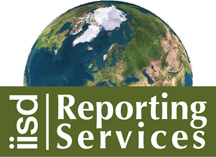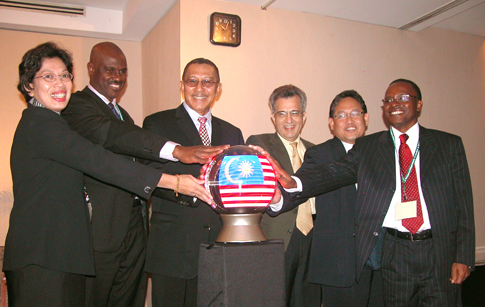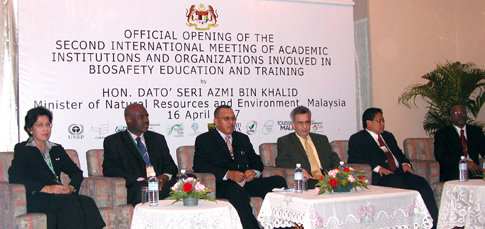News * Abou us * the ENB team * DONATE * Activities * Search * IISD RS home * IISD.org * RSS * What is RSS? * Links |
|
MEA Bulletin Guest Article
Tuesday,
15 May 2007 ENHANCING ACADEMIC INSTITUTIONS AND ORGANIZATIONS INVOLVED IN BIOSAFETY EDUCATION AND TRAINING By Erie Tamale, CBD Secretariat Full Article Short-term ad hoc courses and workshops alone are not sufficient to train the cadre of biosafety professionals and specialists required for the effective implementation of the Protocol. Therefore, the Convention on Biological Diversity has undertaken activities to identify ways and means of promoting long-term formal education and training in biosafety, pursuant to decisions BS III/3 (paragraph 11) and BS-III/11 (paragraphs 16 and 17) of the Conference of the Parties serving as the meeting of the Parties to the Cartagena Protocol on Biosafety (COP-MOP). Most recently, more than 60 representatives from 56 universities and other institutions involved in biosafety education and training met in the Malaysian capital city (Kuala Lumpur) from 16-18 April 2007, to find ways and means of enhancing long-term formal education and training in biosafety. The meeting was organised by the CBD Secretariat and the United Nations Industrial Development Organization (UNIDO) with financial support from the Governments of Switzerland and Denmark. It was hosted by the Government of Malaysia, through the University of Malaya, and was officially opened by Hon. Dato’ Seri Azmi Khalid, the Minister of Natural Resources and Environment. The first meeting was held 4-6 October 2004 in Geneva. Participants shared information on existing biosafety education and training programmes and collaborative initiatives and reviewed the progress made in implementing the recommendations made at the first meeting. They adopted a revised common format for the Compendium of Academically-Accredited Courses and the Biosafety Training Needs Assessment Matrix, both of which will be made available through the Biosafety Clearing-House (BCH). The principal output of the meeting was an agreement to develop regional and sub-regional networks of academic institutions involved in biosafety education and training with a view to fostering collaboration and exchange of information among them, and to pool resources to develop and deliver biosafety academic programmes. As an initial step, each region will embark on collecting information on relevant existing programmes and the key stakeholders involved and make the information available through the BCH. A number of concrete recommendations were also made regarding key issues, guiding principles, strategies and mechanisms that should be considered in the development and delivery of biosafety academic programmes. These included suggestions regarding curriculum development, delivery mechanisms, academic quality control and sustainability of the programmes. Furthermore, participants considered regional and international activities, processes and mechanisms that could facilitate the development and delivery of biosafety academic programmes.
As a follow-up to
the meeting, different regions
(Africa, Asia-Pacific, Central
and Eastern Europe and Latin
America and the Caribbean) plan
to organise regional
consultative meetings to
discuss, inter alia,
options for developing biosafety
academic programmes and
institutional arrangements for
collaboration. These include
modalities for the exchange of
faculty and the sharing of
academic materials, technical
information and other resources.
The CBD Secretariat was
requested to send a notification
to all Cartagena Protocol
National Focal Points inviting
them to initiate discussions
with relevant authorities in
their countries (e.g. Ministries
of Education), in order to help
facilitate the establishment of
biosafety academic programmes at
the national and regional level.
Governments were invited to
complete and return to the
Secretariat the Biosafety
Training Needs Assessment
Matrix. They were also invited
to: (a) work closely with
relevant academic institutions
in order to develop appropriate
biosafety programmes and (b)
provide those institutions with
funding and other support. |



